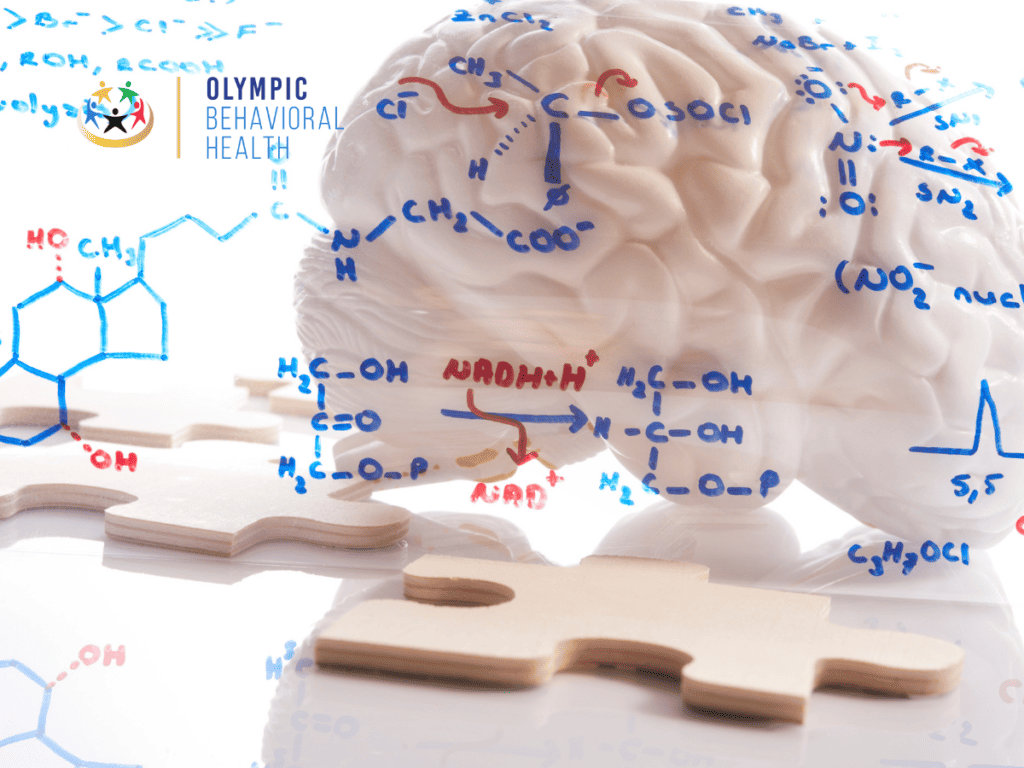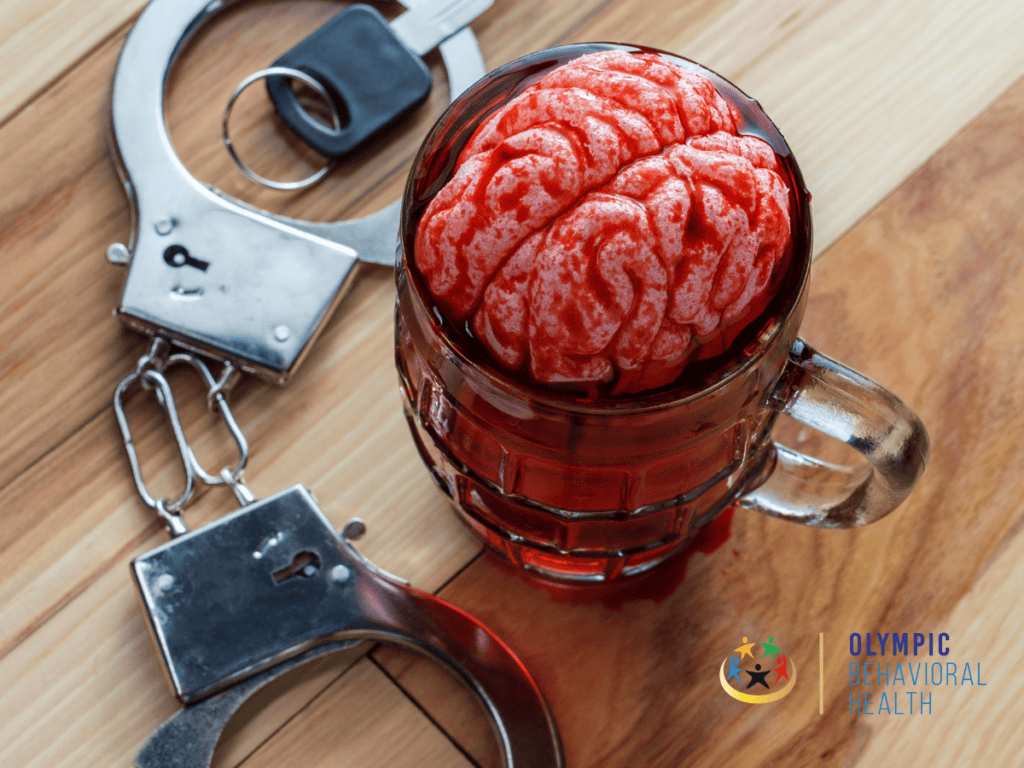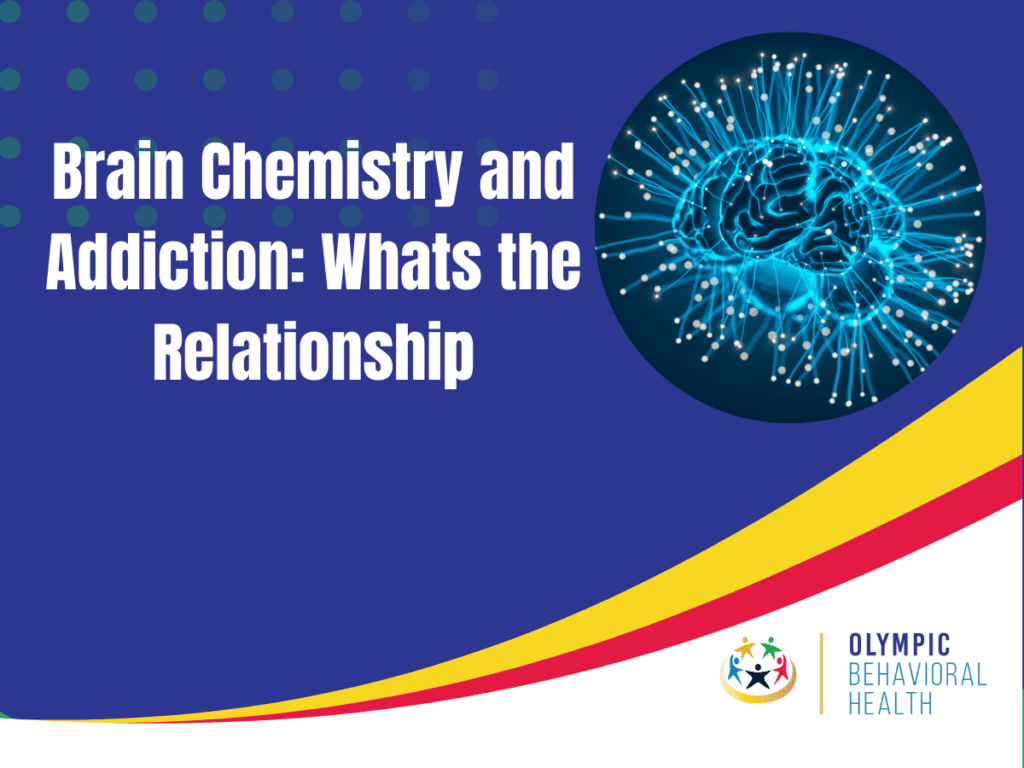The most complex organ in the human body is the brain. It is the powerhouse of the human body as we cannot do any activity without it. Physical activities such as moving from one place to another or kicking a ball, as well as mental activities such as solving an equation are possible because of the brain.
The brain cells, known as neurons, control the body’s flow of information through neurotransmitters. These neurotransmitters respond or react to the imbalance caused by a substance, thereby having effects like relaxation and euphoria. Hence, they play key roles in addiction and drug abuse.
How Does the Brain Work (brain chemistry)?
The brain is a very complex organ, made up of billions of cells. Each cell, known as a neuron, works as a switch regulating the flow of information. Together, they form circuits and networks. Therefore, when enough signal is received by a neuron, it continues the flow of information by sending its own signal to other neurons in the circuit or network.
Specific functions are performed and regulated by different brain circuits. The neurons in each circuit receive and send signals among themselves as well as other parts of the brain. Chemical messengers known as neurotransmitters are released by neurons when sending a message. These neurotransmitters are released into the synapse (the gap between neurons). Once the gap is crossed, neurotransmitters attach to receptors on the other neuron, thereby initiating changes in the receiving neuron.

How Do Drugs Work in the Brain?
The brain chemistry described above is altered by drugs or alcohol. The way signals are sent, received, and processed is affected. For example, the chemical structure of some drugs mimics the chemical structure of the body’s neurotransmitters, hence they are able to activate neurons. However, the activation is unlike that of natural neurotransmitters, leading to the sending of abnormal messages across the circuit. Drugs in this category include heroin and marijuana. Some other drugs, e.g. cocaine, trigger excessive release of natural neurotransmitters or interfere with transporters, hence hindering the normal recycling of neurotransmitters.
What is the Biochemistry of Addiction?
Several factors influence the brain’s response to addiction, such as drug type, the quantity and frequency of use, number of drugs (or drug combination), etc. A common brain response is euphoria, caused by psychoactive drugs that influence the brain’s ability to regulate motivation and pleasure. Though the burst of dopamine that follows is short, it is intense enough to trigger a compelling desire to continue using drugs.
Once an individual is drawn into continuous and consistent drug usage, it becomes extremely difficult to stop, such that help may be required to break free.
How Does Addiction Start?
For most people, drug usage starts as recreation. For example, the first drug attempt for many is at a party or in association of friends. It develops into occasional use for some but for others, this could be the beginning of a difficult experience. Certain predisposing factors play key roles in the susceptibility of individuals to drug addiction. They include:
• Family history of addiction
• Mental health disorder
• Stress or trauma experience
• Ease of getting drug
Note: while it isn’t everyone who uses drugs will have addiction problems, it is imperative to be well aware of the risks. Therefore, everyone must be cautious but people with the above factors have to take extra caution.
The Science Behind Addiction Progression
Addiction is a progressive disease, taking users deeper in the vicious cycle. The changes that occur once the brain adjusts to a drug or alcohol include:
Tolerance: this change entails the reduction of receptors or neurotransmitters, hence necessitating individuals using drugs to take more to get the same or similar effect.
Withdrawal: these are changes that follow sudden stoppage or cut back on the usage of drugs. They can be very unpleasant and individuals may require the help of treatment professionals to prevent a relapse.
Craving: this is a very compelling longing for the substance. Craving can be so intense that willpower almost becomes a secondary factor.
How Does Dopamine Reinforce Drug Use?
Our brain identifies and reinforces behaviors considered good by the feeling of pleasure it triggers. The brain networks work to enhance the chances of repeating activities that give pleasure. Dopamine is the reward circuit of the brain, hence it is at the center of recognizing and reinforcing pleasurable activities. Changes happen in neural connectivity to enhance the ease of repeating the activity with little thought of it. This then leads to habit formation, making the repetition of the behavior almost ‘automatic’.
To learn more about the fascinating connection between dopamine and addiction, click here.
Why are Natural Rewards not as Addictive as Drugs?
As mentioned above, some drugs trigger excessive, beyond normal, release of chemical messengers or prevent them from being recycled, hence creating an ‘overload’ of signals unlike natural rewards where normal amounts of neurotransmitters are released. Therefore, the feeling of ‘pleasure’ from drugs is exaggerated.
In response, the brain produces fewer neurotransmitters or reduces the number of receptors to lower the signal ‘overload’. This makes it even more difficult for reinforcement of natural pleasurable activities. Therefore, to attain normal levels of reward, an individual has to continue taking drugs, a vicious cycle that keeps getting deeper.

Can Someone Be Addicted After Using Drugs Once?
The relationship between brain chemistry and addiction explained above already answers this common question but to be clear, not leaving any room for ambiguity, it becomes important to answer it separately.
Addiction doesn’t happen after using a drug once. However, it could be the beginning of an addiction journey. People often look to experience the euphoria or pleasure of the drug again, hence are more likely to use the drug again. This can then develop into addiction, especially for more susceptible people. The following signs, among others, are indications of addiction:
• Using a drug more or longer than you plan
• Inability to stop or cut back on drugs as you wish
• The desire to use the drug stops you from doing anything else
• Continued usage despite interfering with important life aspects – career, family, friendships, finances, health, etc.
• Stoppage or cut back leads to symptoms like irritability, shakiness, difficulty sleeping, agitation, etc.
• Increasing quantity or frequency to attain the same pleasure level
Can Addiction Lead to Mental Health Disorders?
Addiction increases the risk of exposure to an array of mental health concerns, including anxiety and depression. These mental health issues may be limited to the period of drug influence but may also remain for a long term, especially for people who have a mental health history in their families.
It is important to note that the issue of addiction and mental health could be a “chicken or egg” scenario. Therefore, one is unsure which one leads to the other. Professionals address both addiction and mental health issues during treatment to ensure the cycle is broken.
How does the brain influence addiction recovery?
The brain plays a crucial role in addiction recovery as it is responsible for controlling cravings, emotions, and decision-making processes. Addiction causes changes in brain chemistry, specifically in the reward center, making individuals more susceptible to compulsive and destructive behaviors.
Recovery involves rewiring the brain to reduce the reward response to substances or behaviors and strengthen the ability to resist cravings. This can be achieved through therapy, medication, and healthy coping mechanisms.
Additionally, practicing mindfulness and self-awareness can help individuals identify triggers and develop strategies to resist cravings. Click here to learn more about the importance of therapy in addiction recovery.
What effect has addiction on the vital body organs?
Addiction can have serious effects on the vital organs of the body. Chronic drug and alcohol use can lead to damage and dysfunction in the heart, liver, lungs, and brain. For example, substances like cocaine and methamphetamine can cause severe damage to the cardiovascular system, potentially leading to heart attacks and strokes. Alcohol abuse can result in liver damage and cirrhosis, while opioid use can cause respiratory depression and failure. Furthermore, addiction alters the brain’s chemical balance, which can impact the functioning of various organs and overall physical health.
Long-term addiction has been linked to an increased risk of heart disease, liver disease, and lung disease. Seeking treatment early on can help prevent further damage to these vital organs and improve overall health. Check out our article on the effects that addiction has on the vital body organs.
Get help for your Addiction
Addiction Treatment at Olympic Behavioral Health offers help and support for those struggling with addiction. Taking the first step can be difficult, but it is crucial to call for assistance. Our facility in West Palm Beach provides comprehensive addiction treatment programs to guide individuals towards recovery. If you or your loved one is battling addiction, reach out to Olympic Behavioral Health today.

Share This Post



